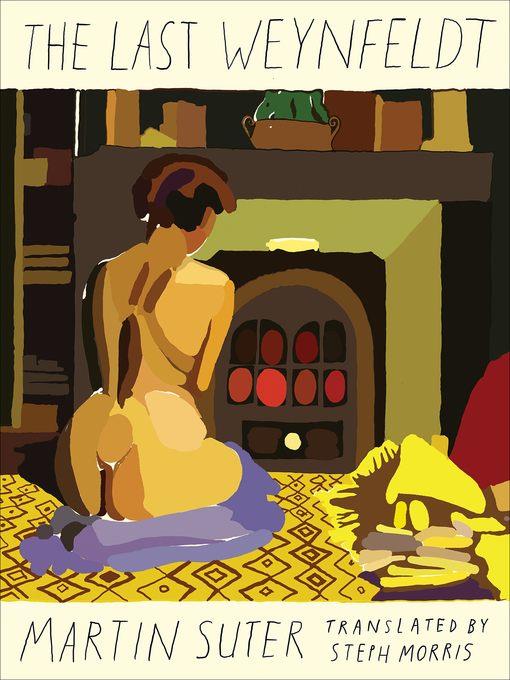
The Last Weynfeldt
کتاب های مرتبط
- اطلاعات
- نقد و بررسی
- دیدگاه کاربران
نقد و بررسی

December 7, 2015
Fans of sensitive, slightly aloof Euro-thrillers—think Stefan Zweig or filmmaker Claude Chabrol—will recognize the metier of Swiss writer Suter, who here leavens the sensationalism of crime fiction with psychological insight and melancholy. Adrian Weynfeldt is an aging bachelor defined by his work buying and selling paintings for a Zurich-based auction house, the haunting memory of his aristocratic family, and his Thursday lunches with his failed artist friends (for whom he generally picks up the tab). Weynfeldt seems condemned to a predictable life until he finds himself abruptly departing from the security of routine. First, he falls for a young femme fatale named Lorena, who threatens suicide after their first encounter and, days later, is caught shoplifting from a department store. Then he becomes embroiled in an art forgery caper masterminded by old family friend, Klaus Baier, who’s everything Weynfedlt isn’t: desperate, impulsive, and materialistic. As his affair with Lorena becomes more passionate (and her behavior more worrying) and the immoral Baier tightens his grasp, Weynfeldt finds himself oddly revivified by the thrill of being taken advantage of—but eventually he will have to choose between his reckless new life and the humdrum safety of the old. Suter is neither overtly experimental nor given to particularly gritty prose, but this is a refreshing book nonetheless, comfort food for readers who crave memorable characters, romance, and touching, drawn-from-life scenes.

December 1, 2015
Fine art, fine wine, and old money collide with forgery and extortion in Zurich. It's clear at the outset that Adrian Weynfeldt, the novel's protagonist, is a dying breed. He comes from old money and makes a habit of standing on ceremony, literally standing and buttoning his jacket, for example, each time a woman enters the room. Weynfeldt likes nice things and so he buys nice things, and that might be the end of his character were it not for his keen awareness of himself. He is isolated and constantly mindful that his wealth creates a divide between himself and his friends. His depression and anxieties are subtly wrought and feel painfully inescapable. The same subtlety cannot, unfortunately, be said for most of the other characters in this novel, and there are many. In fact, nouns abound. We are asked to remember the names of Weynfeldt's older friends, his employees, family friends, younger friends, tailors, and potential love interest. Not all of them are completely necessary to the novel's main story, though, so if you do forget one or two you can still muddle your way through the central action. Interspersed with the names are the objects that populate Weynfeldt's life: the Swiss furniture, the designer clothes, the expensive wine. The main action of the novel, when we reach it at last, has to do with art forgery and a woman who alternates between the femme fatale and the damsel in distress, without much nuance. It's entertaining, if also predictable. Characters behave the way you expect them to, and there's never a sense that Weynfeldt, with his art collection and sizable inheritance, is ever in any real danger. Although enjoyable, Weynfeldt's story doesn't leave much of a lasting impression, for better or worse.
COPYRIGHT(2015) Kirkus Reviews, ALL RIGHTS RESERVED.

Starred review from January 1, 2016
An art expert at an international auction house in Zurich, fiftyish and fastidious Adrian Weynfeldt lives in a beautifully appointed apartment and socializes only with friends of his deceased parents or younger people who take advantage of his good nature and wealth. One night, he uncharacteristically lets a ravishing and unstable young woman named Lorena pick him up, and soon he's involved in both a dangerously spiraling affair and an art-forgery scheme that could cost him his reputation and more. Swiss author Suter, a screenwriter as well as a novelist and columnist, moves the story along in swift, edgy fashion. What distinguishes this work is the air of slightly faded existential elegance, which sets off the modern setting splendidly. VERDICT Great for sophisticated suspense fans.
Copyright 2016 Library Journal, LLC Used with permission.

























دیدگاه کاربران